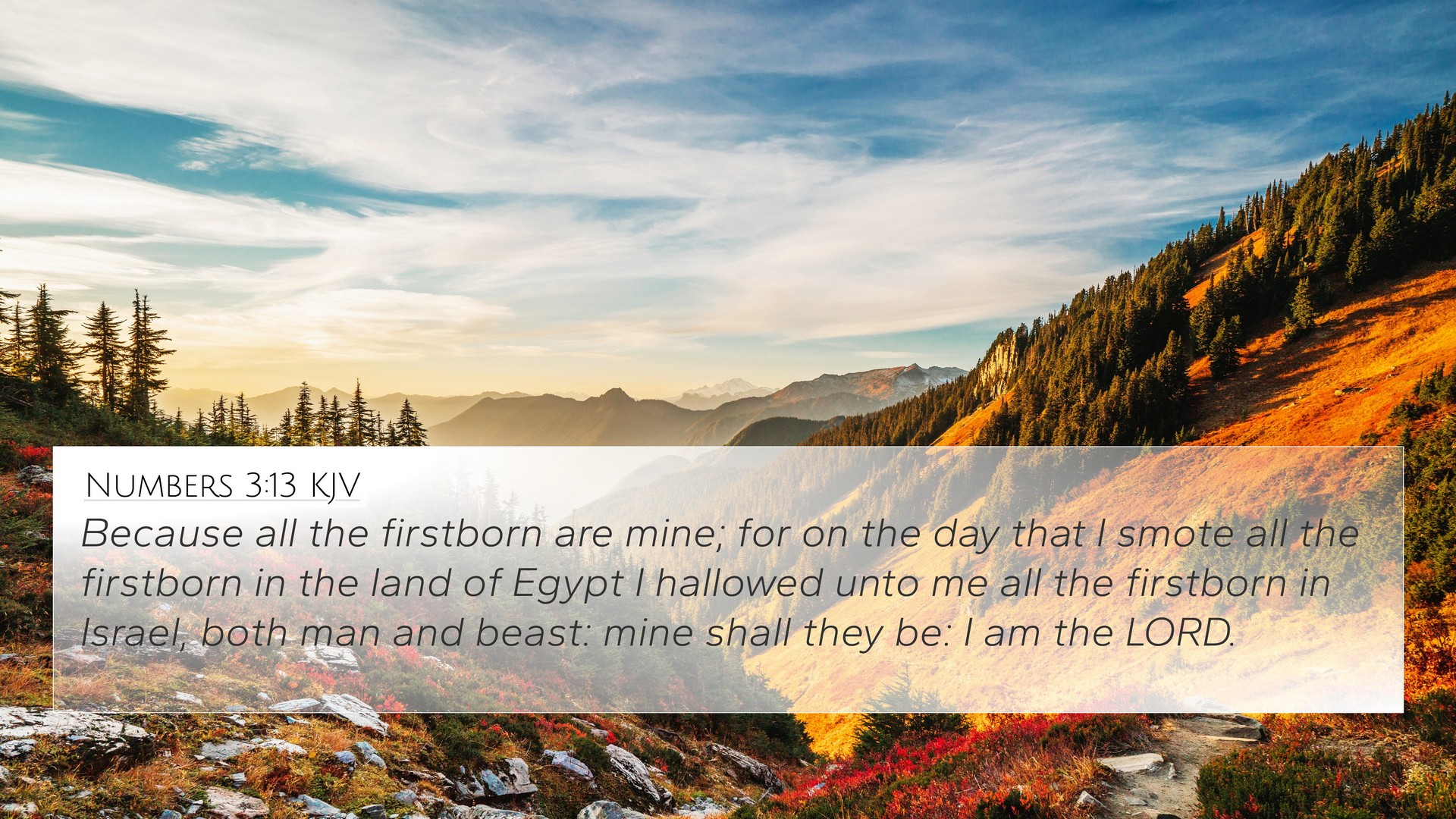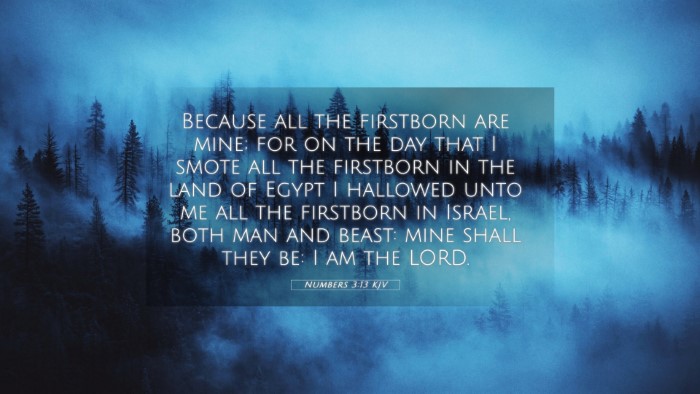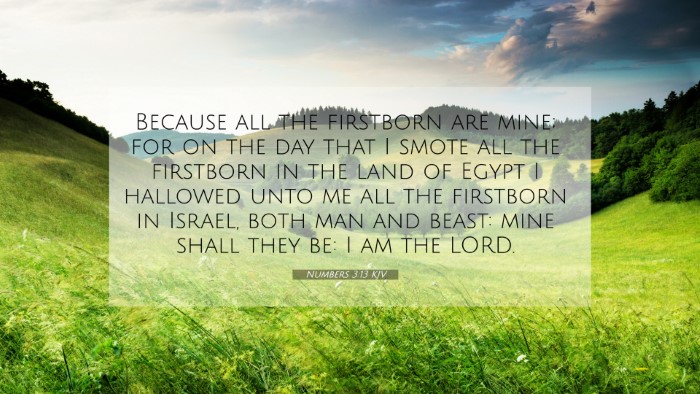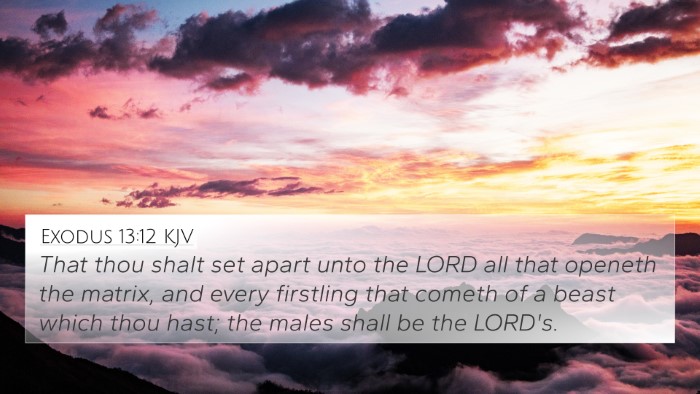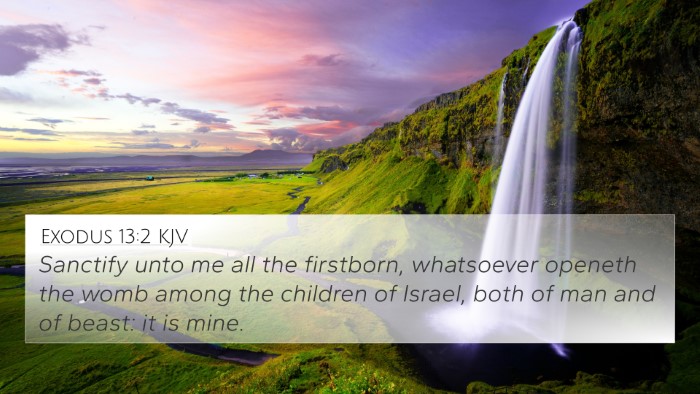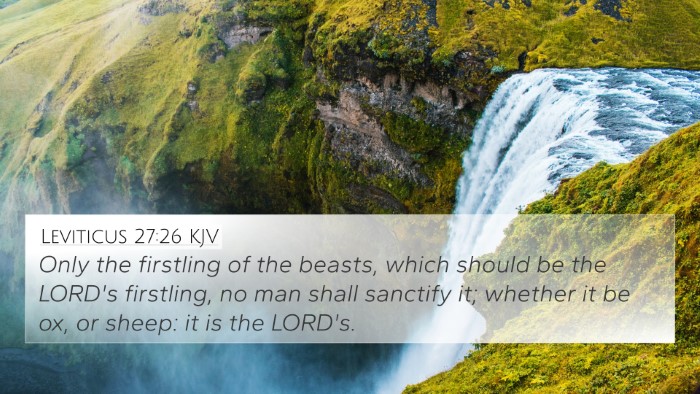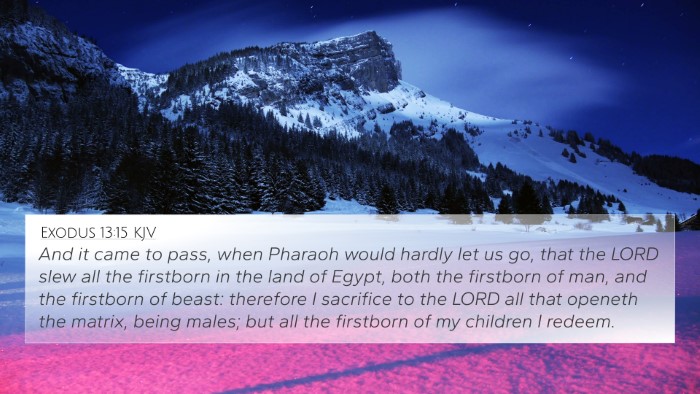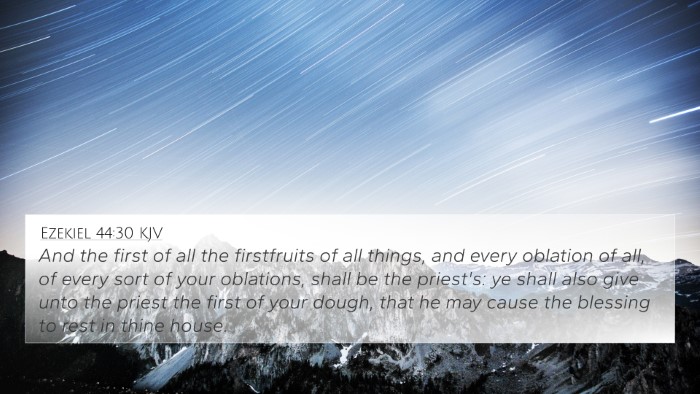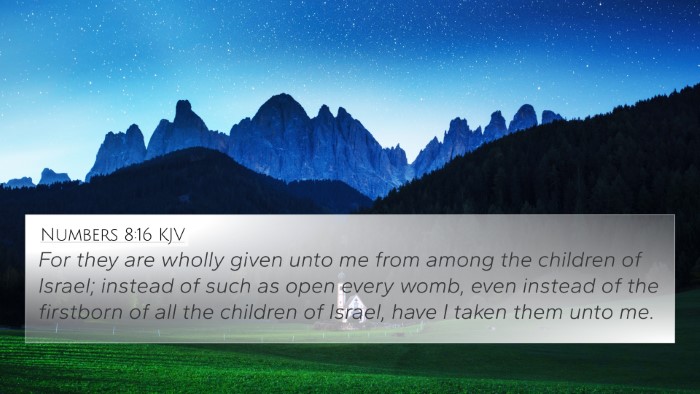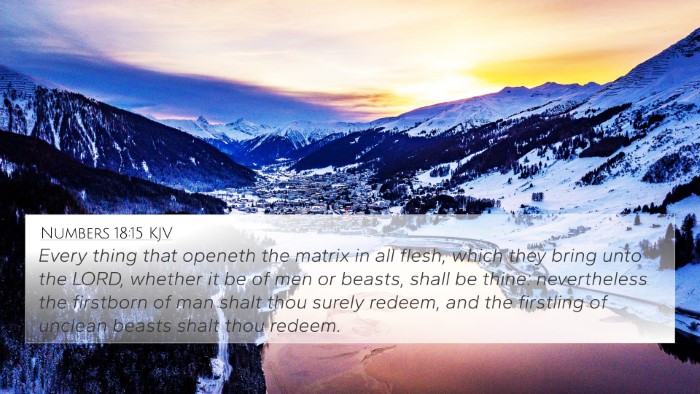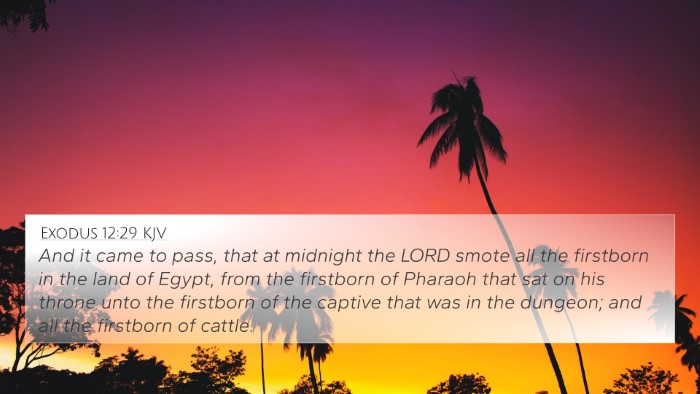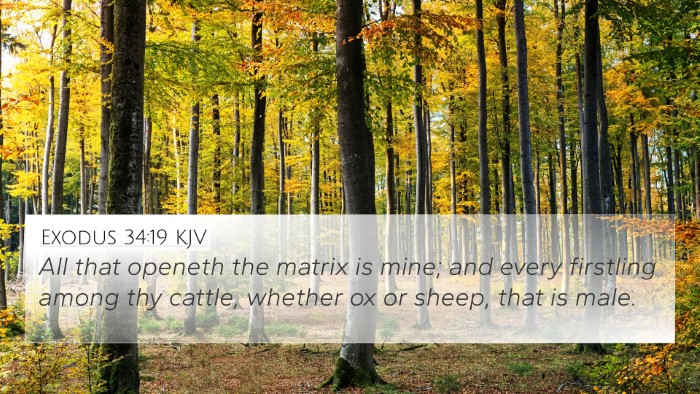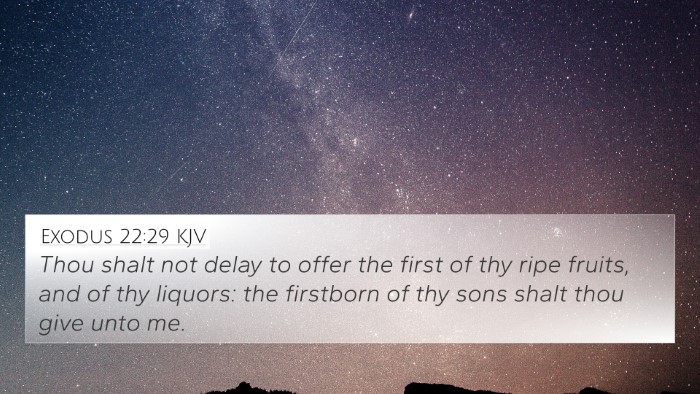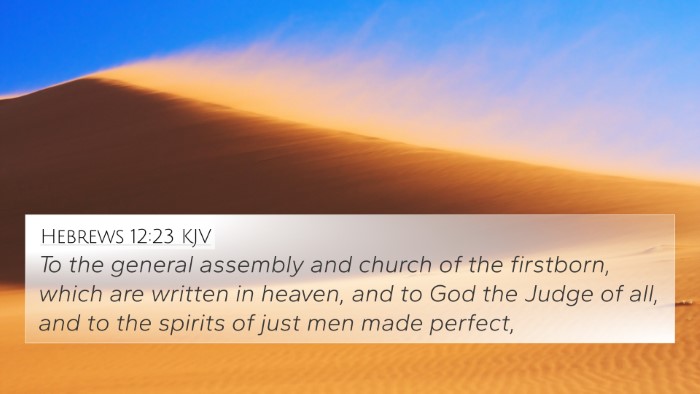Meaning and Interpretation of Numbers 3:13
Bible Verse: Numbers 3:13
"Because all the firstborn are mine; for on the day that I struck down all the firstborn in the land of Egypt, I sanctified for myself all the firstborn in Israel, both of man and of beast: they shall be mine: I am the LORD."
Summary of Key Insights
This verse has significant implications in both the Old and New Testaments, involving themes of sanctification, redemption, and divine ownership. Here are some insights gathered from public domain commentaries:
- Matthew Henry: This commentary emphasizes God's claim over the firstborn, illustrating that they are a reminder of God's deliverance of Israel from Egypt. They serve as a representation of God’s covenant with His people.
- Albert Barnes: Barnes notes that the firstborn were specially consecrated to the Lord as a demonstration of gratitude for their deliverance. This establishes a precedent for God’s own firstborn, who is later revealed in Christ.
- Adam Clarke: Clarke elaborates on the significance of firstborns in Hebrew tradition, linking them to spiritual and physical inheritance. He discusses how this principle is carried throughout scripture, culminating in the New Testament.
Connections and Cross-References
Understanding Numbers 3:13 expands through various connected verses that deepen the thematic relevance:
- Exodus 13:2: This verse highlights the consecration of firstborns to the Lord as a command based on God's saving act during the Exodus.
- Exodus 34:19-20: It reinforces the concept that all firstborn males, whether human or animal, are sacred to God.
- Leviticus 27:26: Discusses the dedication of firstborn animals as holy to the Lord.
- Hebrews 12:23: References the heavenly assembly, where the firstborn are linked to God’s people in the New Covenant.
- Romans 8:29: Connects to the idea of Christ as the firstborn among many brethren, linking sanctification to inheritance.
- Colossians 1:15: Declares Christ's position as the firstborn over all creation.
- Revelation 1:5: Sheds light on Jesus as the firstborn from the dead, establishing his primacy in redemption.
- 1 Peter 1:18-19: Discusses the redemption of believers through the precious blood of Christ, connecting to the idea of sanctification.
- Isaiah 43:1: Affirms that individuals belong to God, linking back to the theme of divine ownership.
- Malachi 1:14: It presents God as a great King, whose name is feared among the nations, emphasizing respect for the sacred.
Thematic Considerations
Numbers 3:13 touches on vital theological themes that resonate across scripture:
- Divine Sovereignty: The assertion that all firstborns belong to God reinforces His ultimate authority and governance.
- Sanctification: The idea of being set apart for God’s purposes is foundational to understanding both the Old and New Testaments.
- Redemption: The linkage between the Exodus and the redemption found in Christ is crucial for a holistic view of salvation.
- Inheritance: The concept extends to the spiritual inheritance that believers have through Christ as the firstborn.
Cross-Referencing Tools and Methods
When engaging with this verse, utilizing various tools for Bible cross-referencing can yield richer insights:
- Bible Concordance: Helps locate key terms and related verses quickly.
- Bible Cross-Reference Guide: Allows readers to explore thematic connections and enhance their study experience.
- Cross-Reference Bible Study: A methodical approach to understand scripture through interconnectedness.
- Comprehensive Bible Cross-Reference Materials: Offers an extensive look at thematic and linguistic links throughout the Bible.
Conclusion
Numbers 3:13 is a pivotal verse that lays a foundation for understanding the sanctity of the firstborn, illustrating the deep connections between God's deliverance of Israel and the ultimate redemption found in Jesus Christ. The use of biblical cross-referencing enriches the study and provides a more profound understanding of the significance of being set apart for the Lord's service.
